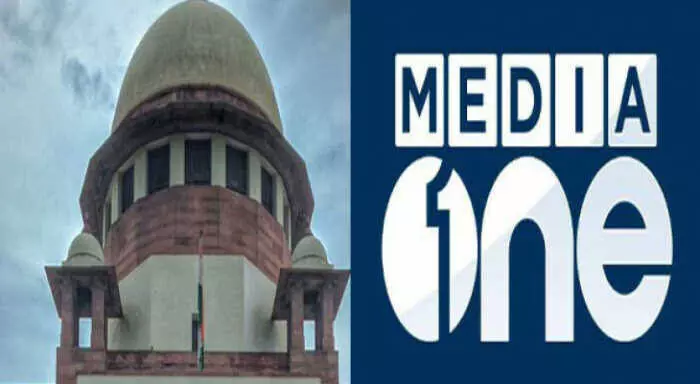
SC to hear Media One's appeal against ban on March 10
text_fieldsNew Delhi: The Supreme Court on Monday agreed to hear on Thursday (March 10) the appeal filed by Malayalam news channel MediaOne against the Kerala High Court's decision upholding the central government's ban on the channel.
Initially, the Chief Justice of India NV Ramana agreed to list it on Friday. The hearing date was later advanced to March 10 after a second mention by Senior Counsel Dushyant Dave citing some personal difficulties on Friday.
Dave had sought urgent listing on the ground that press freedom is at stake.
"For 11 years we have functioned. We have 350 employees & millions of viewers. We've been shut down due to some secret files from Home Ministry and the court has justified it behind our back. It's too serious a matter relating to right to information & freedom of press," Dave submitted.
A Division Bench of Chief Justice S Manikumar and Justice Shaji P Chaly had on Wednesday upheld a single-judge decision which had rejected the channel's plea against the government decision to revoke its license.
The channel contended that the exact reasons for the Centre's non-renewal of the license have not been revealed to them and the Court approved the decision on the basis of certain sealed cover files produced by the Ministry of Home Affairs, purportedly raising some national security concerns.
The petitioner further contended that the impugned judgment was patently illegal since Clauses 9 and 10 of the uplinking and downlinking guidelines make it abundantly clear that for the purpose of renewal of licence, security clearance is not a factor to be considered.
Moreover, since there was not a single complaint or any action against the petitioner in the last 10 years, it was asserted that renewal was a matter of right for the petitioner on a plain reading of Clauses 9 and 10.
Reliance was also placed on the Supreme Court judgment in Manoharlal Sharma Vs. Union of India (Pegasus case) where it was held that the scope of judicial review in matters pertaining to the national security is limited, however, it does not mean that the State gets a free pass every time the spectre of the national security is raised.























